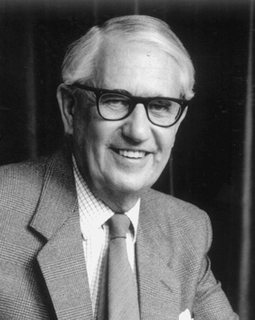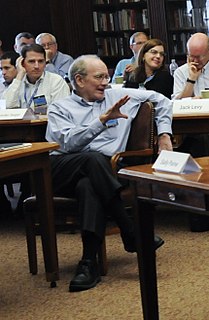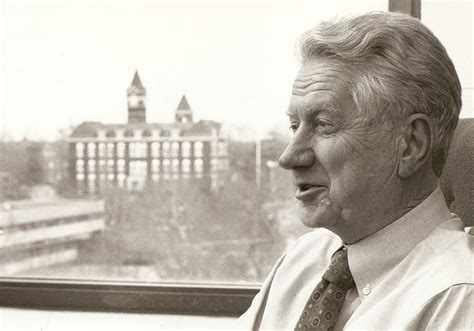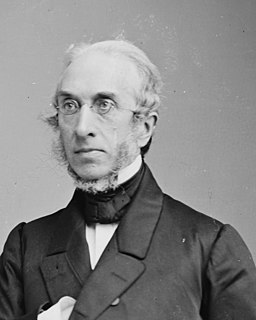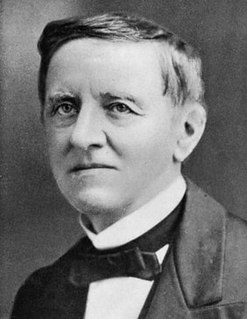Top 328 Jefferson Quotes & Sayings - Page 6
Explore popular Jefferson quotes.
Last updated on December 20, 2024.
Our adversaries [ the Confederate States of America ] have adopted some declarations of independence in which, unlike the good old one penned by Jefferson, they omit the words "all men are created equal." Why? They have adopted a temporary national constitution, in the preamble of which, unlike our good old one, signed by Washington, they omit "We, the People," and substitute "We, the deputies of the sovereign and independent States." Why? Why this deliberate pressing out of view, the rights of men, and the authority of the people?
The Greeks understood that mind and body must develop in harmonious proportions to produce a creative intelligence. And so did the most brilliant intelligence of our earliest days - Thomas Jefferson - when he said, not less than two hours a day should be devoted to exercise. If the man who wrote the Declaration of Independence, was Secretary of State, and twice President, could give it two hours, our children can give it ten or fifteen minutes.
For the system of government you fashioned including the very principles on which you based it, is increasingly obsolete, and hence increasingly, if inadvertently, oppressive and dangerous to our welfare. It must be radically changed and a new system of government invented, a democracy for the 21st century. For this wisdom, above all, I thank Mr. Jefferson who helped create the system that served us so well for so long, and that now must, in its turn, die and be replaced.
In our election manifesto is: we keep the right to create money and to bring in circulation, for the cause of the government ... Those who do not share this view, reply us to the issue of paper money is for the banks, the government should stay out of the banking business. I agree with Jefferson's opinion ... and just like him I say again: the issue of money is a matter for the government and the banks should stay out of government activity.
Any nation that expects to be ignorant and free," Jefferson said, "expects what never was and never will be." And if the gap between the educated and the uneducated in America continues to grow as it is in our time, as fast as or faster than the gap between the rich and the poor, the gap between the educated and the uneducated is going to be of greater consequence and the more serious threat to our way of life. We must not, by any means, misunderstand that.
Conservatives are people who worship at the graves of dead radicals. Stop to think about that. The people who started this country, George Washington, Jefferson, Hamilton, these were not conservatives; these were the radicals of the time. In fact, conservatives always look back on people who they despised and make them into heroes. If you were to listen to the religious right today, they would make you believe that Martin Luther King was one of their flock. In reality, they hated him and did everything they could to destroy him.
I have made a career out of arguing that we shouldn't be criminalizing political differences. I've made a career out of arguing that the grand jury is an abusive institution. I have made a career out of arguing that we shouldn't stretch and expand the criminal law. I'm not going to change it because you think these are abnormal times. When Thomas Jefferson told the Justice Department that they had to prosecute Aaron Burr, and that he was going to have the chief justice impeached unless he found Aaron Burr guilty, those were special times too.
The broadening of the economic order which came to be seated in the individual property owner... dramatized by Jefferson's purchase of the Louisiana Territory... "The supremacy of corporate economic power... consolidated by the Supreme Court decision of 1886 which declared that the Fourteenth Amendment protected the corporation... [the New Deal, leading to], within the political arena, as well as in the corporate world itself, competing centers of power that challenged those of the corporate directors.
Perhaps myself the first, at some expense of popularity, to unfold the true character of Jefferson, it is too late for me to become his apologist. Nor can I have any disposition to do it. I admit that his politics are tinctured with fanaticism, that he is too much in earnest in his democracy, that he has been a mischievous enemy to the principle measures of our past administration, that he is crafty & persevering in his objects, that he is not scrupulous about the means of success, nor very mindful of truth, and that he is a contemptible hypocrite.
Of the six men who have done most to make America the wonder and the joy she is to all of us, not one could be the citizen of a government so constituted; for Washington and Franklin and Jefferson, certainly the three mightiest leaders in our early history, were heretics in their day, Deists, as men called them; and Garrison and Lincoln and Sumner, certainly the three mightiest in these later times, would all be disfranchised by the proposed amendment. Lincoln could not have taken the oath of office had such a clause been in the Constitution.
This Congress did more to uplift education, more to attack disease in this country and around the world, and more to conquer poverty than any other session in all American history, and what more worthy achievements could any person want to have? For it was the Congress that was more true than any other Congress to Thomas Jefferson's belief that: 'The care of human life and happiness is the first and only legitimate objective of good Government.'
Before the Pilgrims landed at Plymouth, we were here. Before the pen of Jefferson etched across the pages of history the majestic words of the Declaration of Independence, we were here. If the inexpressible cruelties of slavery could not stop us, the opposition we now face will surely fail. We will win our freedom because the sacred heritage of our nation and the eternal will of God are embodied in our echoing demands.
It was right then that I started thinking about Thomas Jefferson on the Declaration of Independence and the part about our right to life, liberty, and the pursuit of happiness. And I remember thinking how did he know to put the pursuit part in there? That maybe happiness is something that we can only pursue and maybe we can actually never have it. No matter what. How did he know that?
The fact is that liberty, in any true sense, is a concept that lies quite beyond the reach of the inferior man's mind. And no wonder, for genuine liberty demands of its votaries a quality he lacks completely, and that is courage. The man who loves it must be willing to fight for it; blood, said Jefferson, is its natural manure. Liberty means self-reliance, it means resolution, it means the capacity for doing without . . . the average man doesn't want to be free. He wants to be safe.
George Kennan and Paul Nitze were the Adams and Jefferson of the Cold War. They were there for the beginning, they witnessed its course over almost half a century, and they argued with each other constantly while it was going on. But they maintained throughout a remarkable friendship, demonstrating-as few others in our time have-that it is possible to differ with civility. Nicholas Thompson's is a fine account of that relationship, carefully researched, beautifully written, and evocatively suggestive of how much we have lost because such civility has become so rare.
That strain of anti-monopoly crusading egalitarianism really runs throughout American history from [Tomas] Jefferson to Woodrow Wilson, that finds its apotheosis in [Louis] Brandeis, continues through the New Deal, but then it sort of peters out in the '60s because progressives in particular become more interested in extending equality to minorities, and women, and other excluded groups, and little more suspicious of these old white guys, often from the south, who were crusaders against monopolies.
The first phrase of the First Amendment spoke to the freedom uppermost in Jefferson's mind when it provided that, 'Congress shall make no law respecting an establishment of religion, or prohibiting the free exercise thereof.' Here a double guarantee could be found: first, that government would do nothing to give official endorsement to a religion or to set one faith above another; second, that government would do nothing to inhibit the freedom of religion.
We should face reality and our past mistakes in an honest, adult way. Boasting of glory does not make glory, and singing in the dark does not dispel fear. King Hussein Reason and free inquiry are the only effectual agents against error. - Thomas Jefferson We have made mistakes. In our haste to do all things for all people, we did not foresee the full consequences of our actions. And when the people raised their voices, we didn't hear. But our deafness was only a temporary condition, and not an irreversible condition.
To finish building the free society dreamed of by Washington, Franklin, and Jefferson, we must draw upon the resources of the enlightened imagination, which can be systematically developed by the spiritual sciences of India and Tibet. We have not yet tamed our own demons of racism, nationalism, sexism, and materialism. We have not yet made peace with a land we took by force and have only partly paid for. We are a teeming conglomeration of people from different tribes who have yet to embrace fully the humanness in one another. And none of us can be really free until all of us are.
There's something deeply rooted in American culture. You can pretty much identify what it was. You take a look at the history. It was internal conquest. You had to defend yourself against what the Declaration of Independence, Thomas Jefferson, an enlightened figure, called the attacks of the "merciless Indian savages," whose known way of warfare was torture and destruction. Also you had a slave population, you had to protect yourself against them. You needed guns.
Without Virginia, as we must all acknowledge--without her Patrick Henry among the people, her Lees and Jefferson in the forum, and her Washington in the field--I will not say that the cause of American liberty and American independence must have been ultimately defeated--no, no, there was no ultimate defeat for that cause in the decrees of the Most High; but it must have been delayed, postponed, perplexed, and to many eyes and hearts rendered seemingly hopeless.
Two of the great leaders of the past - Booker T. Washington and Frederick Douglass - had White fathers - who deserted them. Now Margo Jefferson, who is hard on me and the fellas, wrote in the Times that she has nocturnal, erotic fantasies about John Wayne. What's up with these feminists? Do you see these double standards these feminists have? They dream about John Wayne, but they're hard on us [Black men].
But you know, where did the Brontes go to college? Where did George Eliot go to college? Where did Thomas Paine or Thomas Jefferson or George Washington go? Did George Washington go to college? This idea which we now have that people ought to have these credentials is really ridiculous. Where did Homer go to college?
I've long believed that one of the mainsprings of our own liberty has been the widespread ownership of property among our people and the expectation that anyone's child, even from the humblest of families, could grow up to own a business or a corporation. Thomas Jefferson dreamed of a land of small farmers, of shopowners, and merchants. Abraham Lincoln signed into law the Homestead Act that ensured that the great western prairies of America would be the realm of independent, propertyowning citizens-a mightier guarantee of freedom is difficult to imagine.
I was never a Republican, because those gentlemen, distinguished as they are, have only one real interest, and that is the making of special laws in order to protect their fortunes. I also know they have no compassion for the masses of the people in this country who are without money and who are, many of them, without food or houses. I have always thought that only as a Democrat, reflecting Jefferson and Jackson, could justice ever be done the people because, at this moment in history, ours is the only party which is even faintly responsive to the force of ideas.
Jefferson, though the secret vote was still unknown at the time had at least a foreboding of how dangerous it might be to allow the people to share a public power without providing them at the same time with more public space than the ballot box and with more opportunity to make their voices heard in public than on election day. What he perceived to be the mortal danger to the republic was that the Constitution had given all power to the citizens, without giving them the opportunity of being citizens and of acting as citizens.
I am Plato's Republic. Mr. Simmons is Marcus. I want you to meet Jonathan Swift, the author of that evil political book, Gulliver's Travels! And this other fellow is Charles Darwin, and-this one is Schopenhauer, and this one is Einstein, and this one here at my elbow is Mr. Albert Schweitzer, a very kind philosopher indeed. Here we all are, Montag. Aristophanes and Mahatma Gandhi and Gautama Buddha and Confucius and Thomas Love Peacock and Thomas Jefferson and Mr. Lincoln, if you please. We are also Matthew, Mark, Luke, and John.
The New York Times columnist, Thomas Friedman, cited Haqqani to make the argument that Guantánamo must be shut down. He wrote:“Husain Haqqani, a thoughtful Pakistani scholar now teaching at Boston University, remarked to me: 'When people like myself say American values must be emulated and America is a bastion of freedom, we get Guantánamo Bay thrown in our faces. When we talk about the America of Jefferson and Hamilton, people back home say to us: 'That is not the America we are dealing with. We are dealing with the America of imprisonment without trial.'









